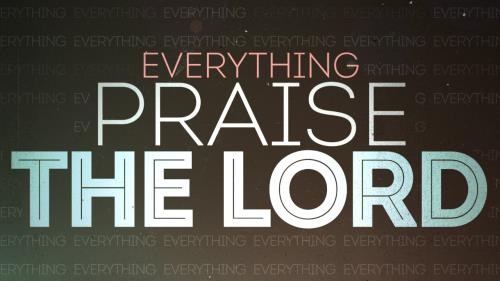-
“why Hast Thou Forsaken” Series
Contributed by Tim Smith on Nov 28, 2017 (message contributor)
Summary: Looks at Jesus' last words “Why Hast Thou Forsaken”
“Why Hast Thou Forsaken”
Matthew 27: 45-46
In this series, we’ve been looking at the last seven utterances of Jesus on the cross. Today, we have the darkest of Jesus’ sayings. Charles Spurgeon called it “the midnight of the day.” It was the darkest hour for Jesus personally as he was separated from his mother and family, his disciples and now for the first time in his life, he felt separated from the Father and there is a darkness in Jesus’ soul as his cry pierces the air, “My God, my God, why hast thou forsaken me?” This saying is unique for two reasons. First, of the seven sayings of Jesus, it is the only one recorded by more than one Gospel writer. Second, it is unique because this is the only time that Jesus asks the question, “Why?” His other statements as we have learned reveal that Jesus is in control and still remembers his mission to forgive sins and reunite people with the Father. He even remembers his responsibility as the oldest son to provide for his mother. But then we get to this statement. There are five things we learn today.
First is the example to follow. “For to this you have been called, because Christ also suffered for you, leaving you an example, that you should follow in his steps.” 1 Peter 2:21 Jesus is our example. His life was an example for the disciples to follow and for us to live, serve and even die for God. One of the first things we learn is that Jesus puts others first. Despite all of the pain and agony he was experiencing, he asked for forgiveness for the crowd, promised everlasting forgiveness to the thief by his side, and spoke to John about caring for his mother. Even as he is dying, Jesus puts others first. Do you remember when the mother of James and John asked Jesus to put her boys at the seats to his left and right? Those were the seats of prestige, authority and power. Jesus looked at her and talked about whether they could drink of that cup, referring to his journey to the cross. Then he began to talk about if we are truly servants of God, we should not want to be first in the kingdom but last. Jesus teaches us that leadership is servanthood. And then he says, “For the Son of man also came not to be served but to serve, and to give his life as a ransom for many.” When you see Jesus throughout the Gospels, he exemplifies that to follow Him means putting the needs of others ahead of our own, no matter how tired or overwhelmed he might be, even if it means going to the cross.
Contrast Jesus’ nature to our own. Our first concern is about us, is it? How long does it take us after birth to express that? Babies demand things from the beginning: food, love and a clean diaper. And one of the first things a child learns is to say, “Mine!” We learn to protect our turf and belongings early in life and we continue to do so until the day we die. We look out for #1 and place our needs, our dreams, and our desires above others. How different is Jesus’ concern expressed on the cross from our own. William Booth, the founder of the Salvation Army, lived in London and pastored a church. He would go into the slums and pick up poor people who were spiritually, physically, and financially down and out and bring them to church. The problem was that the church members didn’t want those people to come. Many times they would comment that the poor can’t carry their own weight by giving to the church. They gave William Booth a hard time and their opposition got so bad that they forced him to leave the church. He then went out and founded the Salvation Army. In the latter part of his life, there was a world-wide convention of the Salvation Army but he had spent all of his life and what he had on others thus he could not afford to go. So in his absence, he sent a telegram which read:
“Others, Lord, yes others, let this my motto be.
Let me live for others Lord that I might like thee be.”
In our Scripture today, we see the most human side of Jesus in the Gospels. It’s an emotion we know intimately because each of us has been caught in circumstances where we have felt forsaken by God, times when we have cried out, “Why God?” So why does Jesus cry out these words? When Adam and Eve lived in the Garden, we know that before their sin, they had close relationship with God, who would come down and take afternoon walks with them. Can you imagine what that must have been like, walking with God and talking face to face with him every day? When Adam and Eve knowingly disobeyed God, a huge gap was created in their relationship. God sought them out and they were found hiding from God and their actions. As a result, they were driven from the Garden and punished. But the worst thing wasn’t that Adam was now going to die or have to work with his hands to survive. The worst thing was that there was now a distance between he and God. No longer would there be afternoon walks or long talks face to face. How they must have missed that and yearned for it to be restored. To have known God and then to be cut off, what an empty feeling that must have given them!

 Sermon Central
Sermon Central



